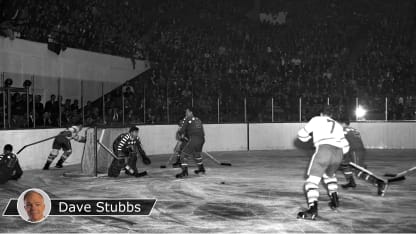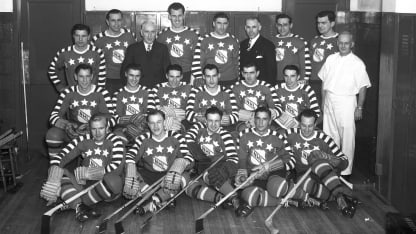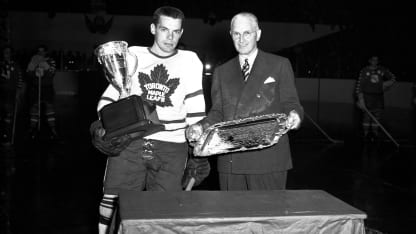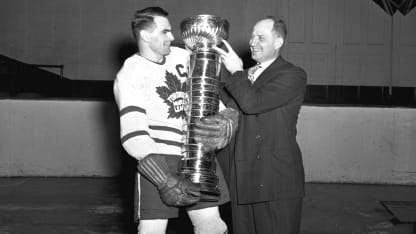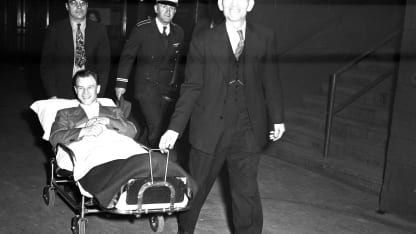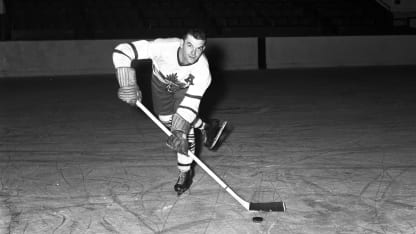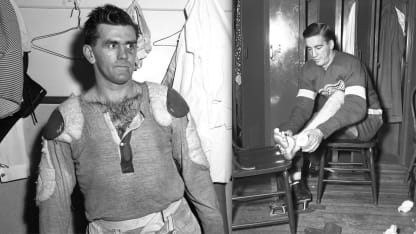The 1947 NHL All-Star team. Bottom row, from left: Bill Quackenbush, Bill Mosienko, Bobby Bauer, Ted Lindsay, Edgar Laprade. Middle row: Milt Schmidt, Tony Leswick, Max Bentley, Grant Warwick, Maurice Richard, Doug Bentley, trainer Ernie Cook. Back row: Frank Brimsek (defending All-Stars net in the top photo), Woody Dumart, coach Dick Irvin, Butch Bouchard, Ken Reardon, NHL president Clarence Campbell, Jack Stewart, Bill Durnan.
The season-opening exhibition would be great fun for the 14,169 who bought a ticket, if not for those players who loathed each other. More importantly, it gave birth to the Players Pension and Savings Plan, which had been proposed to the NHL that May by a players committee.
The NHL would put into the fund two-thirds of the proceeds generated by an annual All-Star Game, beginning in 1947, plus 25 cents from every paid Stanley Cup Playoff ticket. It was estimated that $60,000 would be raised yearly, with players each contributing $900 annually -- a healthy chunk of salaries that at the time averaged $5,000.
Upon reaching age 45, players would be eligible to apply for pension benefits that totaled $8 per month, per year of NHL service; with a 10-year career, a player would be paid $80 per month for life. Group insurance coverage also was available to all plan members.
The fund netted $25,865 from the 1947 All-Star Game, another $12,933 going to the Community Chest of Greater Toronto, the Maple Leafs' charity of choice.
